So, a little background story, I always called my mom "Laurence, the guardian angel of laundry", as she can always rescue any clothes she puts her hands on. She still wears many of the same clothing basics she's had since I was born, and I never understood how.
Recently, after much pestering, she finally told me one of her big secrets: she washes most of her clothes in cold water! After researching the topic, I found out that washing laundry with cold water is actually better in many aspects - including for saving money and reducing those all important bills.
We can all agree that it's hard to break old habits. For example, over 60% of Americans still wash their clothes in hot water, and until recently, so did I. The idea that higher temperatures make clothes cleaner has been passed down from one generation to the next. But with the improvements in high-efficiency washing machines and specially formulated 'cold water laundry' detergents, low-temperature wash cycles are far more effective than they were a decade ago.
Reducing laundry energy use by washing in cold water
Consider this: heating water accounts for about 90% of the energy your machine uses to wash a load of laundry. Switching from hot to warm water can cut our laundry energy use by half! Now let’s imagine switching to cold water. Not only would you help the environment, but you'd also save money - and who doesn't like that?
With advice from Grove Collaborative member and former Director of Science and Formulation Clement Choy, Ph., here's why we should all switch to washing in cold water:
Water temperature is a measure of how fast molecules move - the warmer the water, the faster the particles move. But temperature is only one of four components used to effectively clean clothes. You must also consider the total wash time, the efficiency of your machine and the type of detergent you use.
"The basic idea of an HE machine is to reduce the amount of water, increase the concentration of detergent and run a longer cycle," Mr. Choy says. "Even without an HE machine, using a more concentrated detergent with less water over a longer wash time all pushes the idea that you can get away with colder temperatures."

How do cold water laundry detergents work?
Cold water laundry detergents are specially formulated with enzymes and surfactants that work exceptionally well at low temperatures, traditionally as low as 60°F / 15°C, (although today they can work at temperatures as low as 40°F / 5°C). These enzymes effectively break down stains, allowing the surfactants and functional ingredients to work their magic.
"We try to use ingredients, surfactants and otherwise, that are at least as effective in cold water as in hot water, and we optimize the enzyme system and maximize the percentage to combine the enzymes and dosage," Choy explains.
Each enzyme in special cold water detergents targets a different type of stain:
- Protease - protein-based stains
- Amylase - starch or carbohydrate stains
- Cellulase - breaks down cotton fibers to release dirt
- Mannanase - food-based stains
- Pectinase - fruit-based stains
Mr. Choy also notes that "enzymes are a key part of the equation. But other factors also contribute to cold water washing, whether it's putting less laundry in your machine or increasing wash time."
When should you wash clothes in cold water?
It's simple, use cold water for all loads that you would normally use warm and/or hot water for, including whites. Fun fact: colors that tend to bleed - and dark and bright colors - will actually come out as clean or cleaner, and will last longer with cold water washing. Delicate fabrics, like lace and silk, also prefer cooler temperatures. Cooler temperatures prevent clothes from fading, shrinking and transferring colour to other clothes during the wash. Well, what do you know, that's how my mom does it!
Let's get down to the nitty-gritty of getting laundry clean in cold water:
Does cold water remove stains better than hot water?
You might be surprised to learn that not all stains respond well to warmer temperatures. Warmer water often set the stains into the fabric, making them nearly impossible to remove. That's where our green hero, cold water, comes in. It removes all kinds of stains, including grass, blood, sweat and makeup. Cold water also prevents stains from becoming embedded and permanent.
Does cold water kill germs in laundry?
Despite its ability to remove dirt, stains and some bacteria from clothes, the cold water process does not kill germs. But don't give up on washing your clothes in cold water! Not all water temperatures, even hot water cycles, necessarily kill all the molds and organisms that can cause respiratory infections, colds and flu etc.
The best way to kill all these microorganisms at once, according to the experts I asked, is to run an ENERGY STAR-rated dryer on high heat for at least half an hour with a reasonably full load. This method will also kill dust mites and lice.
Another tip for 'intimate' or other fabrics that are susceptible to retaining odors despite a wash, is a monthly wash at 200°F / 90°C (no detergent). However, if in any doubt at all, follow precisely the wash label on anything you feel may be fragile. And literally feel it - is it flimsy? Silky? Then no to hot!) - I REALLY don't wish to be held responsible for ruining someones favorite 'lucky' delicates!
Washing laundry with cold water - to recap:
- Given their design, modern washing machines are well-equipped to wash in cold water. Not only are modern washers designed for cold water, but many detergents contain enzymes that can begin to work at temperatures as low as 40°F / 5°C, and cold water detergents also improve results.
- Cold water is suitable for most clothes and other items that you can safely put in the washing machine. It removes many stains from clothing, including grass on your child's jeans or makeup stains on a sweater.
- Delicate fabrics (lace and silk) and dark, colourful fabrics do best in cold water.
- Not all stains respond to hot water. For example, blood and sweat can become embedded in fabric with hot water so cold water is often best for this type of laundry.
- It's estimated that 75-90% of all the energy used by your washing machine is used to heat the water, so by switching to colder water, you can reduce your gas or electricity bill.
- Washing in cold water makes clothes less likely to shrink or fade and become damaged.
- Cold water can also reduce wrinkles, saving the energy costs (and time) associated with ironing.

When is cold water not suitable for washing laundry?
Sometimes, to be 100% pragmatic, warm or hot water works better for washing laundry, depending on the fabric, type of stain or specific washing needs. For example:
- Knits and synthetic fabrics (such as spandex, nylon, polyester and rayon blends) are easier to wash in hot water - although in an ideal world, these fabrics are best avoided because they release a large and toxic stream of microplastics with each wash.
- If the goal is to sanitize laundry, for example if you or a family member is sick, washing clothes and bedding in hot water can help stop the spread of germs.
- Climate can also play a role. In cold climate provinces and states, where tap water only reaches 40°F / 5°C or less in the winter, detergents may not work well depending on which you use. In these areas, warm or hot water may be required to get clothes clean.
For laundry, the wash label is always right
If you are unsure whether a specific item should be washed in hot water, or if you have particularly expensive or fragile clothes, read the label carefully:
Most labels have a wash symbol that looks like a square tub with a wavy line for water.
Inside this symbol you will find either a number or dots. A number indicates the highest temperature of the wash water. The dots translate to the following water temperatures:
- One dot is for 90℉ (30℃)
- Two dots are for 105℉ (40℃)
- Three dots are for 120℉ (50℃)
- Four dots are for 140℉ (60℃)
- Five dots are for 160℉ (70℃)
- Six dots are for 200℉ (95℃)
I would say there is very little risk in washing at a colder temperature than the garment manufacturer recommends, but I would hesitate to wash a basket full of expensive fine silk blouses, or linen trousers, in water hotter than is recommended.
Using common sense helps, as does some knowledge of fabrics in general - a rule I also apply to clothing manufacturers who want to avoid litigation by labeling everything they make as 'dry-clean only'! In my experience, if it's light in color and 100% polyester, or poly-cotton blend, nothing short of a direct hit from an inter-continental missile is going to alter it. So wash away with impunity, bearing in mind that in an ideal world, and as mentioned previously, these fabrics are environmentally suspect and probably best avoided.
Conclusion for washing laundry in cold water?
Using hot water once in a while helps keep clothes clean, but using hot water on a regular basis damages clothes and your money goes, literally, down the drain. If there are many people in the household, if you have a multi-generational family, and especially if there are a number of teenagers or bathroom enthusiasts, try to wash in cold water as often as possible and consider installing a drain water heat recovery system as well for all those hot baths and showers. This is a relatively passive and long-lasting way to make significant reductions in water heating bills, and one of many easy small changes for a more sustainable lifestyle.
Now that you know all about washing laundry in cold water, learn more about home water efficiency and conservation of natural resources in the Ecohome Green Building Guide pages.
Find more about green home construction and reap the benefits of a free Ecohome Network Membership here. |


























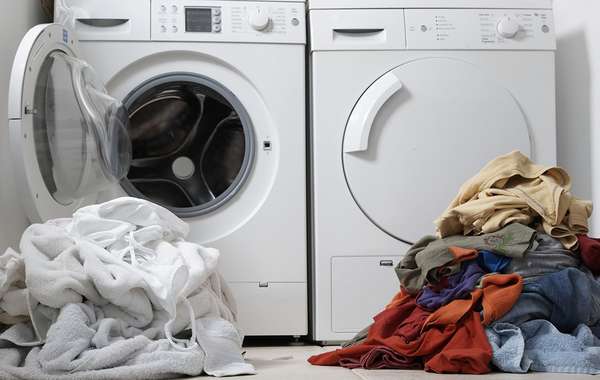
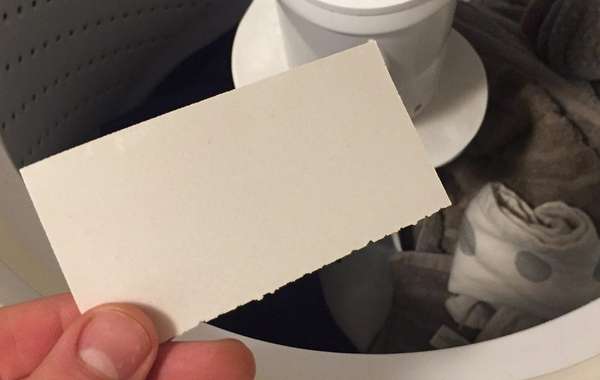
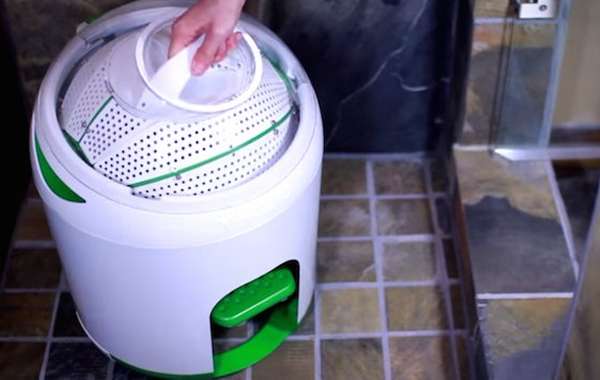


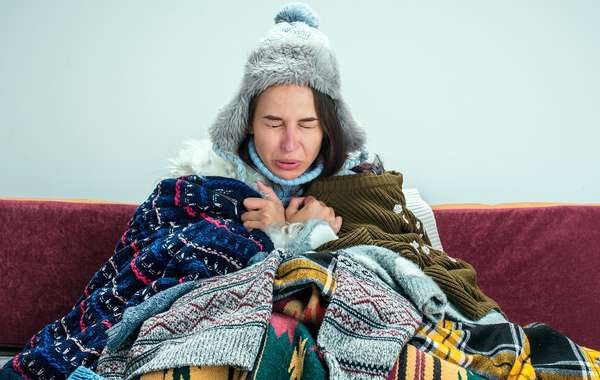



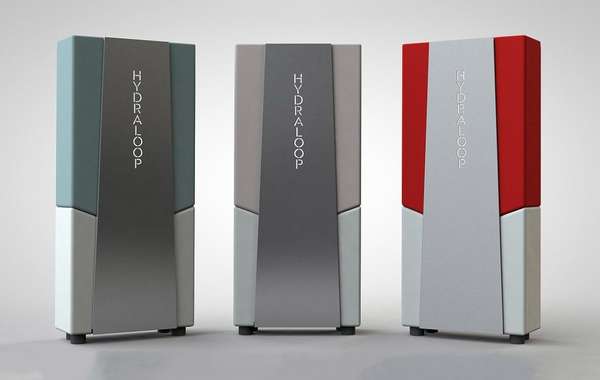
Comments (0)
Sign Up to Comment